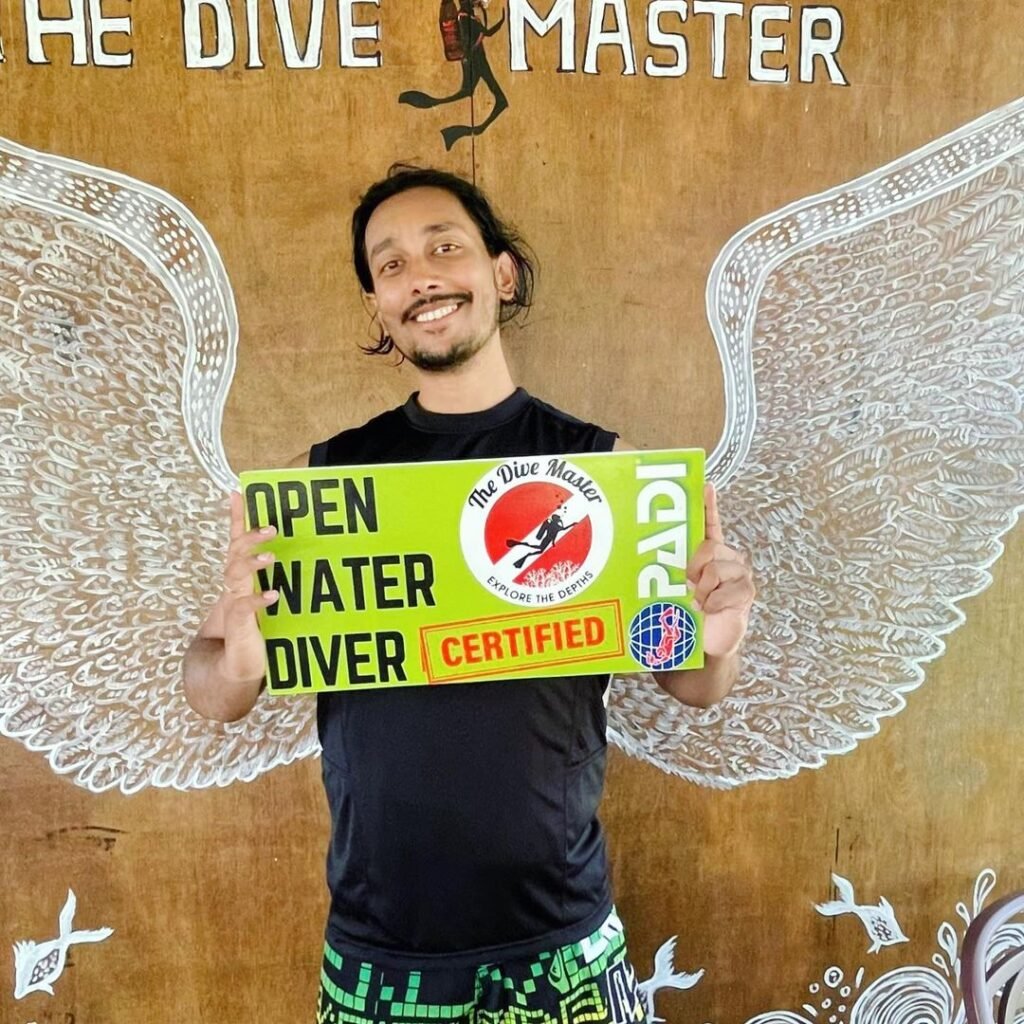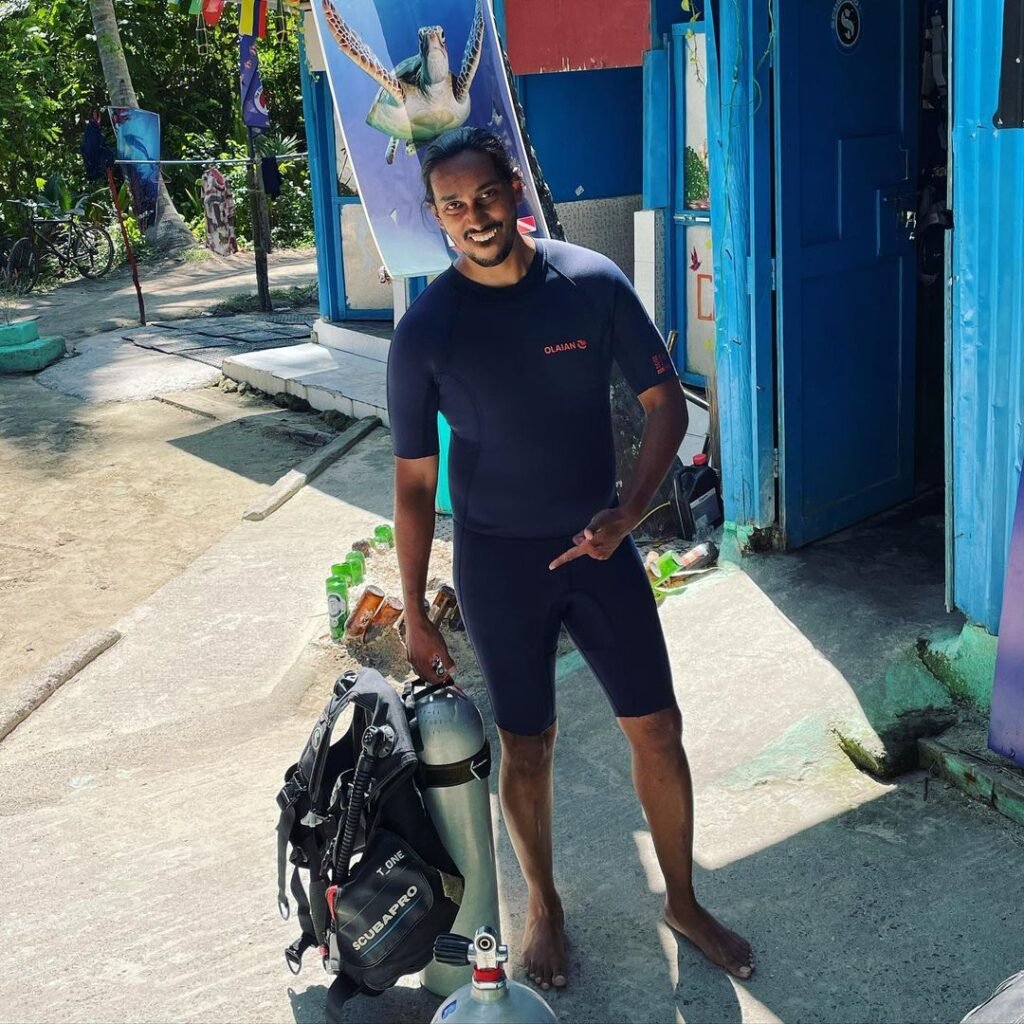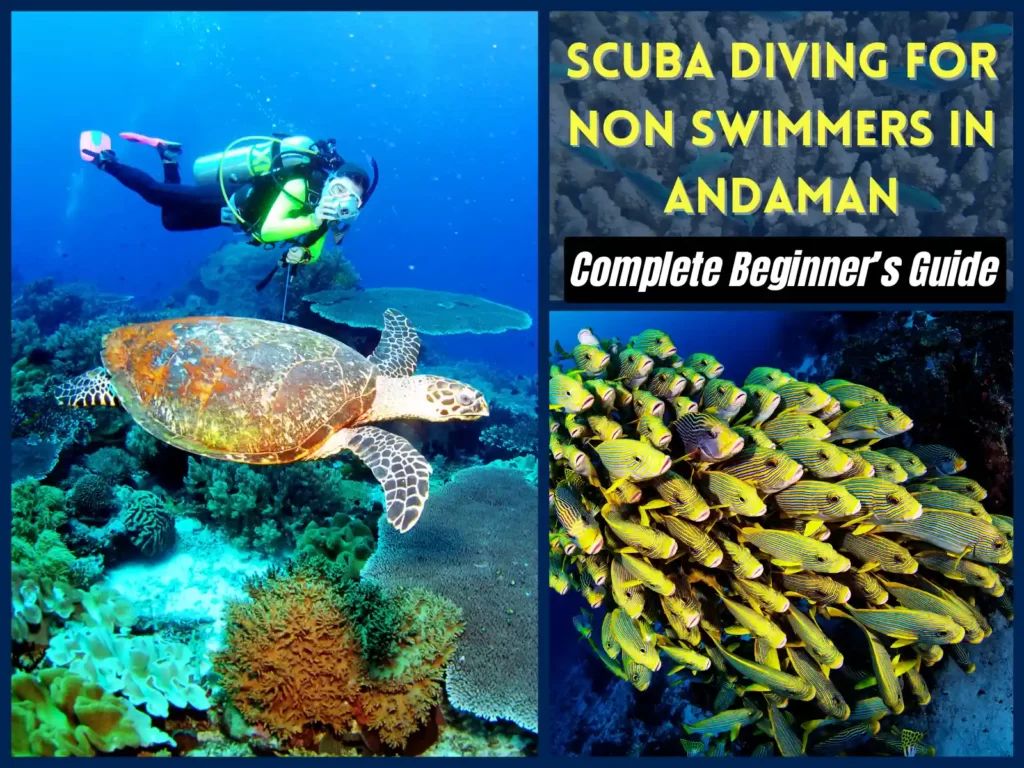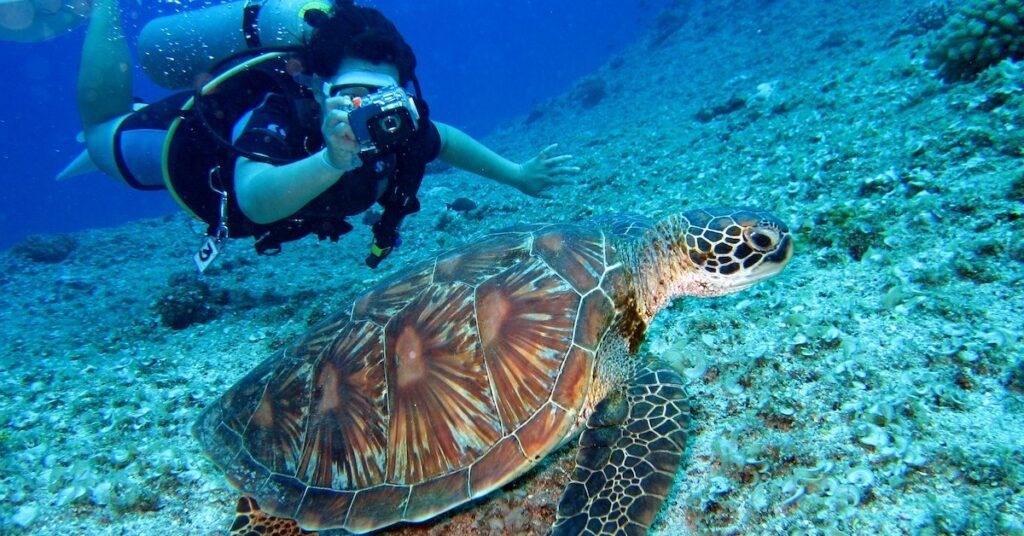Are You searching for how to become a certified scuba diver in India if Yes, then You are in the right place. Through this post, you will know everything to become a certified scuba diver.
Scuba diving has emerged as a thrilling and widely popular activity, allowing enthusiasts to explore the mesmerizing underwater world. With its diverse and spectacular dive sites, India has become a haven for scuba diving enthusiasts. In this article, we will delve into the secrets of becoming a certified scuba diver in India, uncovering the hidden treasures that await you beneath the surface.
Understanding Scuba Diving
What is scuba diving?

Scuba diving is an exhilarating aquatic adventure that grants us a glimpse into a mesmerizing underwater realm. Scuba diving in India offers enthusiasts the opportunity to explore the wonders of the sea, and one such captivating destination is scuba diving in Andaman.
Scuba diving involves diving deep into the ocean using a Self-Contained Underwater Breathing Apparatus (SCUBA). This gear empowers divers to breathe underwater and unlock the secrets hidden beneath the waves. The sport combines the thrill of exploration with a sense of tranquility as you float weightlessly amidst vibrant coral reefs, dancing marine life, and surreal shipwrecks.
In India, the Andaman Islands stand out as a scuba diving paradise. The region boasts crystal-clear waters teeming with diverse marine species. Imagine encountering elusive sea turtles, majestic manta rays, and even enigmatic hammerhead sharks! The underwater landscape reveals a kaleidoscope of colors, textures, and formations, evoking sheer awe and admiration.
Whether you’re a seasoned diver or a novice, the underwater realm of India’s Andaman Islands will leave an indelible mark on your soul. The sense of weightlessness and harmony with nature is an experience unlike any other, offering a profound connection with the ocean’s mysteries. So, dive in, embrace the unknown, and let scuba diving transport you to a world of captivating beauty and discovery.
The science behind scuba diving

To fully grasp scuba diving, understanding the scientific principles behind it is crucial. Key concepts include pressure and buoyancy, as the delicate equilibrium between these forces allows divers to maneuver effortlessly through the water.
Equipment and gear
Scuba diving requires specific equipment to ensure safety and facilitate exploration. Essential gear includes a diving mask, snorkel, fins, wetsuit or drysuit (depending on water temperature), buoyancy control device, regulator, cylinders, and weight system.
Safety measures and precautions
Prioritizing safety is paramount in scuba diving. Adhering to safety protocols such as thorough pre-dive checks, maintaining proper buoyancy control, monitoring air supply, and diving within personal limits is essential to avoid accidents and ensure a memorable diving experience.
Eligibility criteria for scuba diving course in India
The Basic eligibility criteria for scuba diving courses at The minimum age should be 15 Years old or Know basic swimming and have no health issues like asthma B.P, and No medicine taking.
Scuba Diving in India: Hidden Treasures
Magnificent dive sites in India
India’s coastlines are adorned with a plethora of breathtaking dive sites. From the Andaman and Nicobar Islands in the Bay of Bengal to Goa’s vibrant underwater landscapes in the Arabian Sea, each region offers unique features and diverse marine life.
Marine life encounters
Immerse yourself in India’s vibrant marine ecosystems and encounter captivating marine life. From stunning coral reefs teeming with colorful fish to majestic manta rays, sea turtles, and even elusive sharks, there is an abundance of captivating creatures to discover beneath the waves.
Season and weather considerations
Understanding the best times to dive in different regions of India is crucial for optimal visibility and diving conditions. Whether it’s the calmer months of October to May in the Andaman Islands or the monsoon-free period of November to April in the Arabian Sea, planning your dives accordingly will ensure an unforgettable experience.
Cultural significance of diving sites
Delve into the historical and cultural aspects of various dive sites in India. Discover ancient shipwrecks that offer a glimpse into the maritime history of India or explore submerged temples and statues that hold spiritual significance. Each dive site brings forth a unique blend of cultural heritage and underwater wonders.
Becoming a Certified Scuba Diver in India
Choosing a certified diving center
Selecting a reputable diving center is crucial for a safe and comprehensive certification process. Factors to consider include the center’s accreditation, experienced instructors, and positive reviews from past students.
Entry-level scuba diving certifications
Different certification agencies offer a range of courses for aspiring divers. Popular agencies such as PADI (Professional Association of Diving Instructors), SSI (Scuba Schools International), and NAUI (National Association of Underwater Instructors) provide entry-level courses like Open Water Diver or Scuba Diver certification.
Required training and skills
To become a certified diver, one must undergo training that covers theoretical knowledge, essential diving skills, and practical application. These include learning about dive planning, hand signals, underwater communication, emergency procedures, and buoyancy control, among others.
Classroom and practical sessions
Certification courses have a combination of classroom sessions and hands-on practical training. Classroom sessions include theory discussions, video presentations, and knowledge assessments, while practical sessions cover shore chest-level water on the shoreside of the beach. or confined water training and open-water dives to put learned skills into practice.
Certification costs and duration
The cost and duration of certification courses vary depending on the chosen agency and course level. Generally, entry-level courses take a few days to a week and involve a reasonable investment. However, the long-lasting benefits and exhilaration of becoming a certified scuba diver make it a worthy investment.
Dive log and post-certification opportunities
Maintaining a dive log, a record of your dives is both practical and enjoyable. It helps you track your diving experience, dive sites, and marine encounters, while also providing a basis for advanced certifications and potential employment opportunities as a dive professional.
Is scuba diving suitable for everyone?
Scuba diving is a recreational activity that can be enjoyed by individuals of varying ages and physical abilities. However, certain medical conditions or physical limitations may require a doctor’s clearance before engaging in diving activities. It is advisable to consult a medical professional to ensure suitability.
Are there any age restrictions for scuba diving certification?
Different agencies have age requirements for certain certifications. Generally, individuals must be at least 10 years old to take part in junior-level scuba diving courses. For adult certifications, there is no upper age limit as long as the diver meets the necessary health and fitness requirements.
What is the average duration of a scuba diving certification course?
The average duration of a scuba diving certification course ranges from a few days to a week, depending on the agency and course level. Entry-level courses often consist of theory sessions, confined water training, and open water dives, allowing students to gain the confidence and skills required for safe diving.
Can I dive immediately after receiving certification?
Immediately after receiving certification, divers are qualified to undertake diving activities within the scope of their training. However, it is important to continue diving regularly to maintain and improve skills, gain experience, and gradually progress toward advanced certifications.
How can I ensure my safety while diving?
Safety in scuba diving primarily relies on proper training, adherence to safety protocols, and maintaining a calm and controlled mindset. Always dive with a buddy, regularly service and check equipment, plan dives within personal limits, and respect the marine environment. Ongoing training and experience enhance safety awareness and decision-making skills.
Conclusion
Embarking on the journey to become a certified scuba diver in India opens up a world of adventure and discovery. With its diverse underwater landscapes, vibrant marine ecosystems, and rich cultural heritage, India offers a captivating playground for scuba diving enthusiasts. By choosing a reputable diving center, acquiring the necessary training and skills, and delving into the underwater wonders, you can unravel the secrets of the underwater world and create memories that will last a lifetime. So, don your gear, take the plunge, and dive into the enchanting realm beneath the Indian waters.
If you want to know more about the scuba diving course in Andaman or the packages we have mentioned in complete and brief details



